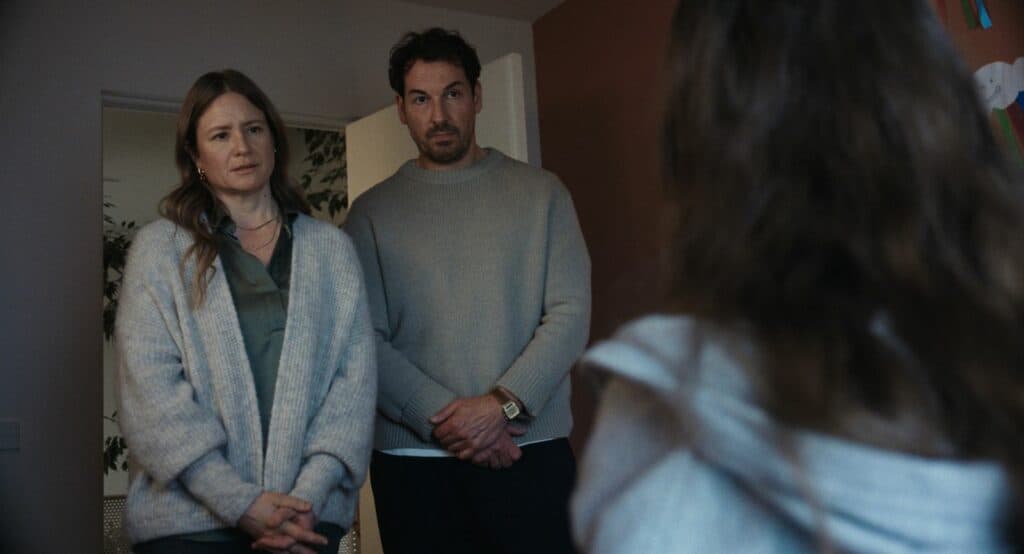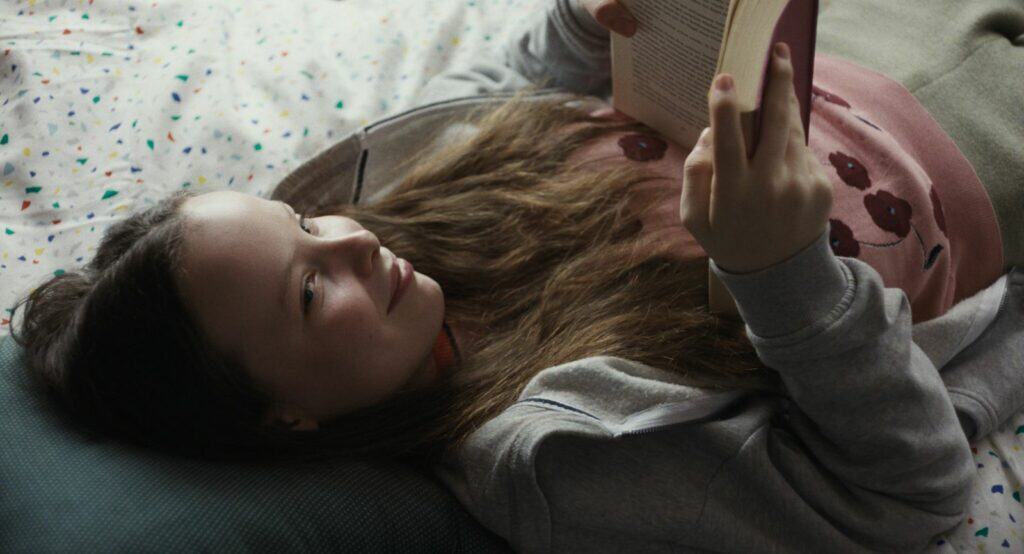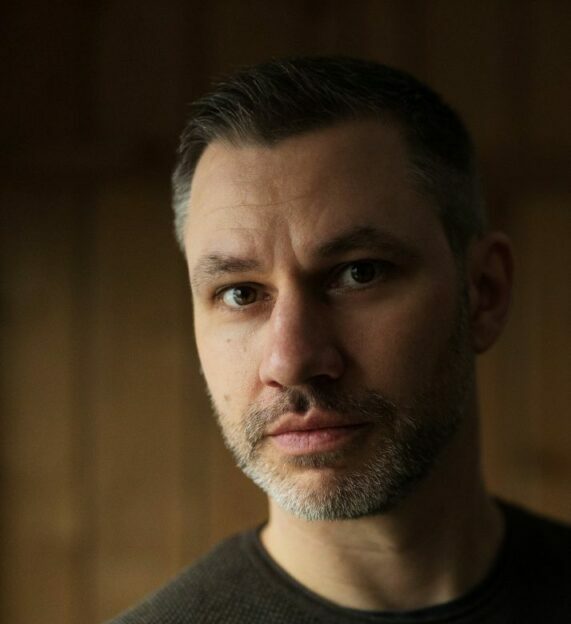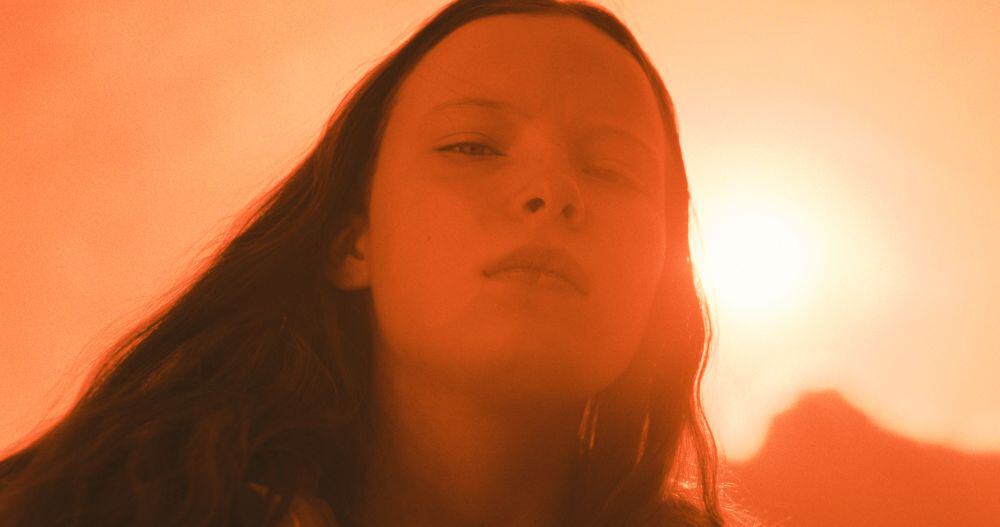What Marielle Knows (Was Marielle weiß) is the sophomore feature by Frédéric Hambalek (interviewed here) and one of only two German films in the Berlinale competition. The other was Yunan. At the heart of What Marielle Knows is a seemingly ordinary suburban family thrown into chaos by an extraordinary twist. Julia (played by Julia Jentsch) and Tobias (Felix Kramer), a moderately content couple navigating the routines of professional life, discover that their 12-year-old daughter, Marielle (Laeni Geiseler), has inexplicably developed telepathic abilities following a playground altercation. Suddenly, Marielle can see and hear everything her parents do—whether at work, in the car, or behind closed bedroom doors. How will Marielle’s sudden abilities affect the family dynamics?
Hambalek has explained that the initial inspiration for this film came a few years back when someone
showed him a baby monitor with a built-in camera, which was a brand new thing back then. He felt something was wrong with it and asked himself what would happen if you reversed that power dynamic. What would parents do if they were somehow monitored by their kids? Another factor is how children regard their parents. Normally, they see their parents as demigods until they start growing up and gradually see their weaknesses. In this case, Marielle will get an instant crash course on all of this, breaking some of her illusions. The telepathy factor was merely a way to avoid technological distractions.

What Marielle Knows about Nordic gender roles
What Marielle Knows has been labelled a comedy, and there was plenty of laughter during the press screening. Something that surprised me and the sentiment was echoed by the director, who was surprised that the premiere audience laughed as much as they did. Substantial portions of the film follow the parents in their respective workplaces. Julia is flirting with her co-worker, Max, during illicit cigarette breaks, and their conversation is sexually charged. Meanwhile, Tobias, who works at a publishing house, sees his power (manhood?) challenged by his co-worker Sören, who does everything he can to provoke Tobias. Since the film is from 2025, the gender parts are quite obvious, not least from a Nordic perspective.
While discussing the film after the press screening, several German colleagues stressed the German aspects of the film, not least concerning the topic of privacy. Germany is famously worried about being under surveillance and watched over. If I had a Euro for every time a person from Berlin lectured me about the perils of credit cards, I would be a very rich man. When I asked the director about this, he rejected the notion that the topics were particularly German and opined that the issue of privacy is more universal than that. The Funkloch issue aside, I agree since I felt that several characteristics of the film felt quite Nordic.

The film’s locations are largely minimalistic, especially the workplaces, but also the family’s home. There are lots of open spaces, and when the space is closed, it is by a window rather than a wall. The director said that he wanted to get away from the clichés of observing through glass panes and rather stressed the intimate space created by close-ups. That is a welcome idea and shows that Hambalek is aware of the potential pitfalls of his concept. Still, my mind often wandered to recent Nordic films such as The Hypnosis and the films of Ruben Östlund.
This might sound like a sad triangle, but Hambalek mentioned Turist (Force majeure) as a film he watched during the production, still stressing the formal differences between the films. I agree wholeheartedly with the director about those differences, but I still couldn’t shake a pronounced feeling of deja vu while watching What Marielle Knows. We don’t get to know much about the titular character since she is primarily a catalyst for the action. In several ways, the film is a treatise on the topic of the Observer effect. That will be particularly evident during the film’s latter part, in which some of the parents’ actions feel performative. It should be said that the acting in the film is uniformly excellent.
Regarding the point of a child being able to see her parents’ true nature, I was reminded of the classic The Simpsons episode Wild Barts Can’t Be Broken, where the children of Springfield, inspired by a film that is a thinly veiled version of Village of the Damned (1960) realise that they don’t need special powers, but what they already know about their parents is enough to make them uncomfortable. Another connection between the two works is a late reveal that won’t be discussed here. Suffice it to say that What Marielle Knows didn’t bring me any new insights and that it is unfortunate that the titular character is the least explored since she is the most interesting character.


